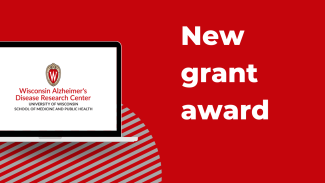
Investigators from the Wisconsin Alzheimer’s Disease Research Center received funding from the National Institute on Aging to develop a culturally appropriate dementia evaluation toolkit with the Oneida Nation of Wisconsin. The multi-site project also involves researchers from the University of Minnesota Duluth working with the Red Lake Nation in Minnesota and the University of New Mexico working with the First Nations Community HealthSource in Albuquerque. The grant, “Addressing Alzheimer’s Disease and Related Dementias Disparities: The American Indigenous Cognitive Assessment (AMICA),” is expected to total $10 million over 5 years.
Compared to the majority population, Indigenous rates of Alzheimer’s disease and related dementias are approximately three times higher. This grant aims to increase accuracy and early detection of Alzheimer’s disease and related dementias in American Indian communities. The toolkit will include:
- cognitive assessment
- caregiver report of symptoms of dementia
- evaluation of depression symptoms
- inventory of changes in activities of daily living (ADLs)
Carey Gleason, PhD, MS, who leads the Wisconsin ADRC’s Inclusion of Underrepresented Groups Core, will serve as multiple principal investigator (MPI) on the grant with Kristen Jacklin, PhD, executive director of the Memory Keepers Medical Discovery Team, University of Minnesota Medical School Duluth Campus, and Tassy Parker, PhD, RN, professor in the Colleges of Nursing and Public Health, University of New Mexico Health Science Center. Wisconsin ADRC investigator Megan Zuelsdorff, PhD, assistant professor in the UW School of Nursing, is a co-investigator on the grant.
The Memory Keepers Medical Discovery Team published “Addressing Alzheimer’s Disease and Related Dementias Disparities: A 5-year project to develop a culturally safe assessment toolkit called the American Indigenous Cognitive Assessment (AMICA)” on June 1, 2022.



